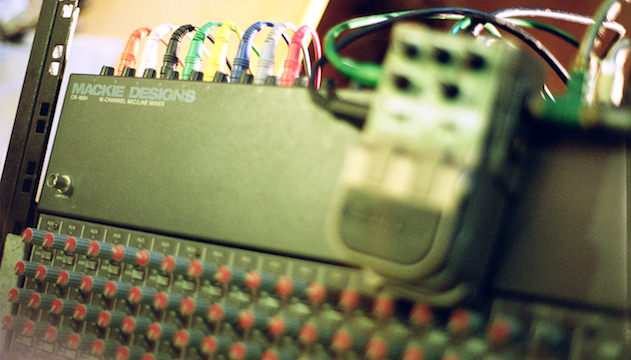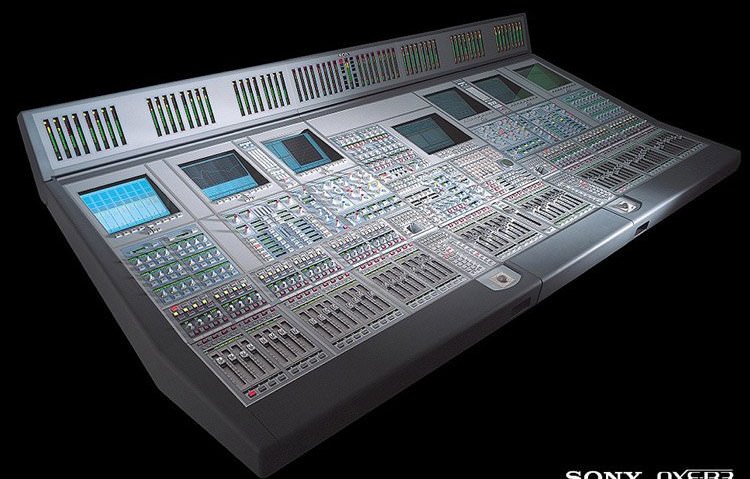Mackie Desk EQ

The EQ circuits found in cheap Mackie mixing desks over the course of the last couple of decades aren’t anything special. They’re functional, low-budget designs based on cheap components, built down to a cost. They sound nowhere near as smooth, sweet or precise as most of the other models we’ve showcased here. The bottom-of-the-range models are about as basic as EQ gets: only two bands, each with fixed frequencies.
As for the sound? Rough. “It’s brittle and pretty harsh sounding, but it has its place,” says Neville Watson, who uses a CR-1604. Chopstick’s a little less restrained, simply describing the sound of Mackie EQ as “really shit”.
If it’s so rough and basic, why should Mackie Desk EQ justify inclusion on a list of the best EQs for dance music? Because it’s been used on more classic dance tracks than any other hardware EQ you could name. It may never have been many producers’ first choice, but Mackie Desk EQ is a prime example of making the most of what you’ve got and working within a set of limitations. In an era when most producers enjoy the unprecedented flexibility afforded by DAWs and plugins, it’s a more important reminder than ever.
Back in the 90s, when mixers were expensive, audio software was primitive and outboard EQ was beyond the reach of most producers, affordable Mackie desks were the go-to choice. Name a high-profile dance producer working in the 90s and chances are they had a Mackie at some point: Carl Craig, Aphex Twin, Daft Punk, The Chemical Brothers, The Prodigy… the list is endless.
Alan Braxe recalls how the Mackie EQ helped define the sound of Parisian house back in the 90s: “We worked with the small eight-channel Mackie mixer a lot and that was a big part of the sound. The EQ was only two bands – highs and lows – so the setup is so restrictive that it forces you to focus on what’s essential. Limitation forces you to adapt to the situation and it’s going to define your sound. If your EQ only has two bands, you have to find tricks to overcome the situation.”
The setup is so restrictive that it forces you to focus on what’s essential.
In the software world, no one’s been brave (or foolish?) enough to emulate any of the Mackie Desk EQs yet. That doesn’t matter. The point is that perfect sound quality and infinite options aren’t necessary to make great music. In the immortal words of Moodymann: it ain’t what you got, but what you do with what you have.

08.29 PM
I love you all.
08.53 PM
You missed KUSH! for higher, simply the best.
08.55 PM
PS I dot think you acknowledged that precision cuts are a different ballgame to those beautiful wide sweeps. Different tool.s.
09.00 PM
for me, Pultec for bass. Cambridge for tight cuts. and natives for gentleness. If that makes sense. Either way, keep up the good work.
09.29 PM
Maag?
03.01 AM
The most important Eq curve for dance music is the 24 or preferably 48 dB/Oct slope highpass filter. It allows producers with even average abilities to create low end and low mids that are complex and layered yet intelligible. Most producers I know have an Eq doing just this on good percentage of the tracks in every song. I’d say that for and EQ to truly be the EQ of dance music it would need to be able to not only do this but be available to do it on 10 or more (usually more) stereo tracks at the same time. This is where the humble native EQ in most daws shines with its low DSP rent high flexibility. It might not be the most glamorous or best sounding EQ but it might do more for the bass than even a pair of hardware pultec or even a gaggle of dsp pultecs. Add in its pre and post internal spectrum analyzer and it seems pretty amazing.
04.25 PM
I Love the IK Pulteq, it just makes most things sound better. Too easy to get carried away with it though.
06.48 PM
Just some notes on availability of these EQs as emulations. Both the API 500 series and Sonnox Oxford have officially licenced plug-in versions from Universal Audio.
http://www.uaudio.com/store/equalizers/api-500-series-eq-collection.html
http://www.uaudio.com/store/equalizers/oxford-eq.html
04.14 AM
KEEP up the phenomenal work guys!
10.16 AM
I own a clariphonic myself, and I don’t think there’s a better eq to focus and lift the highs on your 2-buss. Personally, I’m getting ready to sell my SSL E-series EQs so that I can pickup an Electra from Kush…
He’s doing it right.
11.59 AM
Awesome magazne with loads of very useful tricks and insights for the general producing general producers that just don’t have the means to approach music with real world professional knowledge. Very grateful and wish you a continuesly sucessful and quality ensured publication of such! 100% support :)
06.41 PM
Um how there is no baxendall eq here is just beyond me. The most used and useful eq of all time. Didn’t get a look in.
02.54 AM
Kush isn’t a secret anymore, the word is out. The best, most intuitive and creative EQ and Compressor I’ve ever used. Slow to upgrade completely to AAX, but worth the wait.
01.10 PM
Oh .. I love SSL EQ man ! its the amazing shit u can ever get 😀
12.54 AM
what about the millennia NSEQ-2, the GML 8200 and Maselec Mea 2 ? (there’s also the Crane IBIS)
06.12 AM
That mackie EQ is fucking shite, I can’t believe you put that next to the SSL, which is the mutt’s nuts.
02.00 AM
I use the 5500 in my mastering rig everyday. It’s stellar for fast program, passes every transient perfectly. Big bold sound. Not what I would call transparent but perfect for electronic music.
Will Brodeur
lacquer channel mastering.
10.33 PM
Elysia Xpressor is one notable absence from this list… the Elysia stuff is practically made for electronic music, so clean and precise.
06.03 AM
So why you not tell anything about NEVE EQ’s?